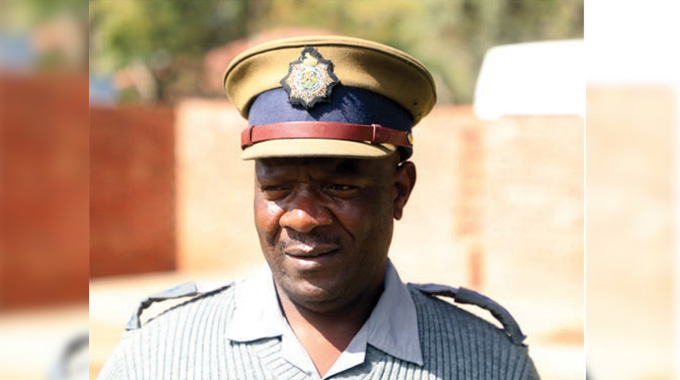Mat’land leaders in clarion call for food relief
Leonard Ncube and Pamela Shumba Senior Reporters
TRADITIONAL leaders in Matabeleland have called on the government to intensify its food relief programme to avert starvation.
The chiefs from Matabeleland North and South provinces told The Chronicle in interviews yesterday that they had lost hope for a good harvest with crops wilting due to excessive heat and lack of rainfall.
The Meteorological Services Department has said the dry spell being experienced in most parts of the country would continue beyond mid-January.
The chiefs said most farmers were yet to plant while those that have planted had lost hope.
“Things don’t look right and we’re just hoping that it’ll rain soon. Only a few whose fields are on upper land had planted while those in old farms have nothing that germinated because of lack of rain. We don’t know what we’ve done wrong as a community,” said Chief Shana of Jambezi in Hwange district.
“Our biggest fear now is how the vulnerable are going to survive. We just hope the government will continue distributing grain so that at least they pull through.”
Acting Chief Mvuthu also from Hwange said villagers had stopped cultivating in their fields.
“Crops are wilting. We’ve never experienced such a dry spell and if it doesn’t rain this week everything will be lost. We hope the government would quickly intervene with food handouts,” he said.
Chief Dingane from Gwayi said pastures were running out with no water in rivers.
“People had a good maize crop but all that is wilting. If we don’t get rain this week then we would simply have to forget about anything. People are worried and just yesterday villagers moved livestock to the lion infested bush where they spend the whole day guarding them because the little pastures near the villages have been finished,” he said.
Areas such as Matetsi, Lusulu in Binga, Jotsholo and Gwayi and parts of Nkayi have been hardest hit.
Even Umguza district which is generally wetter has not been spared.
Chief Sikhobokhobo of Nkayi said they were trying the engage GMB to reduce the price of grain for villagers to afford.
He said a bag of maize was being sold for $24 at GMB, which he said was not affordable to many.
“Our crops are almost a write-off and we appeal to GMB to slash their prices because we can’t have people dying when there are maize stocks somewhere,” he said.
Chief Sinansengwe from Binga said the situation was not promising.
Tsholotsho District Administrator Nosizi Dube said there was nothing in the fields.
The situation is the same in Matabeleland South.
The chiefs said food that has been distributed in the province through the Department of Social Welfare was not enough to feed all the affected families.
Chief Bango from Mangwe said some families were going for days without eating a decent meal.
“The situation is really bad. We’ve gone for two years now without rains and this has seriously affected the well-being of the villagers in the community. Some families are going for days without eating a decent meal,” he said.
“I’m appealing to the government to do something about the situation.
“Villagers are also losing their livestock due to drought. The food is available at the shops but many people here don’t have the money to buy.”
He said the situation was being worsened by the weakening rand as most families in the area have relatives working in South Africa.
“Most families here have relatives working in South Africa. The money sent back home is not enough to cater for all their needs because the rand is losing value against the United States dollar.
“The few families that can afford to buy food are forced to share with others but it’s not sustainable. I hope the government will urgently come in and assist,” said Chief Bango.
Chief Masuku from Matobo district said they only received rains in November, adding that villagers were knocking at his door on a daily basis asking for food.
“It’s unfortunate that Isiphala Senkosi is empty because nothing came from the fields in 2014 and 2015. People are coming to my homestead everyday begging for food but I’ve nothing to give them,” he said.
“It has become difficult to survive in this part of the country. People survive on begging and the unfortunate thing is that literally everyone is starving.”
Reports say about 300 head of cattle have died in Matabeleland South alone as a result of drought.
It is estimated that more than 350,000 of them could die if no intervention measures are taken. The government has urged villagers to destock to avoid losses due to drought. According to a government crop assessment report, Matabeleland South requires nearly 61,000 tonnes of grain.
Finance and Economic Development Minister Patrick Chinamasa recently said the country has grain stocks enough to last up to mid this year.
Experts have advised farmers to plant small grains, short season varieties and stagger planting to spread the risk. Climate change has resulted in weather extremes, constant droughts, floods and strong winds destroying people’s lives and property worldwide.








Comments